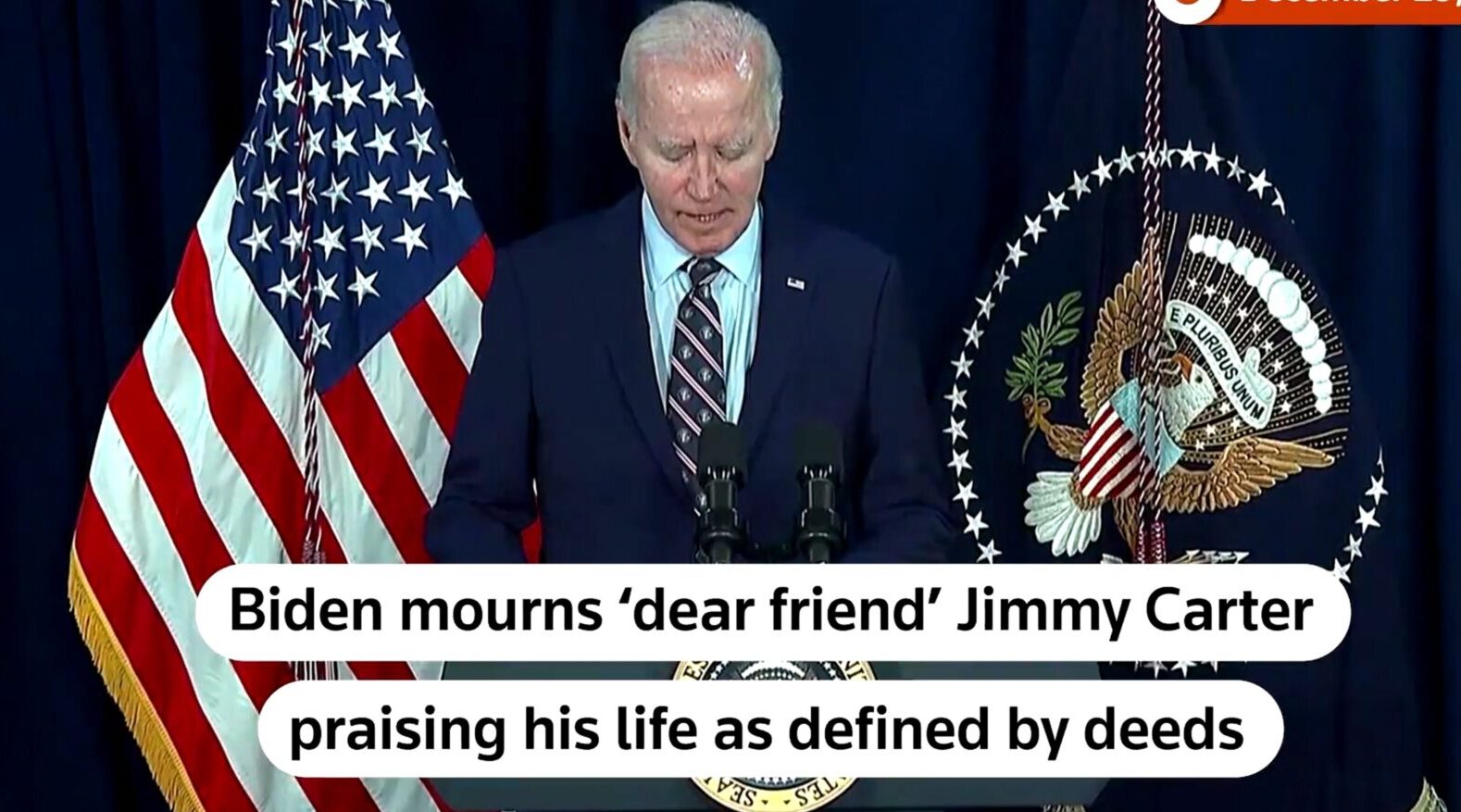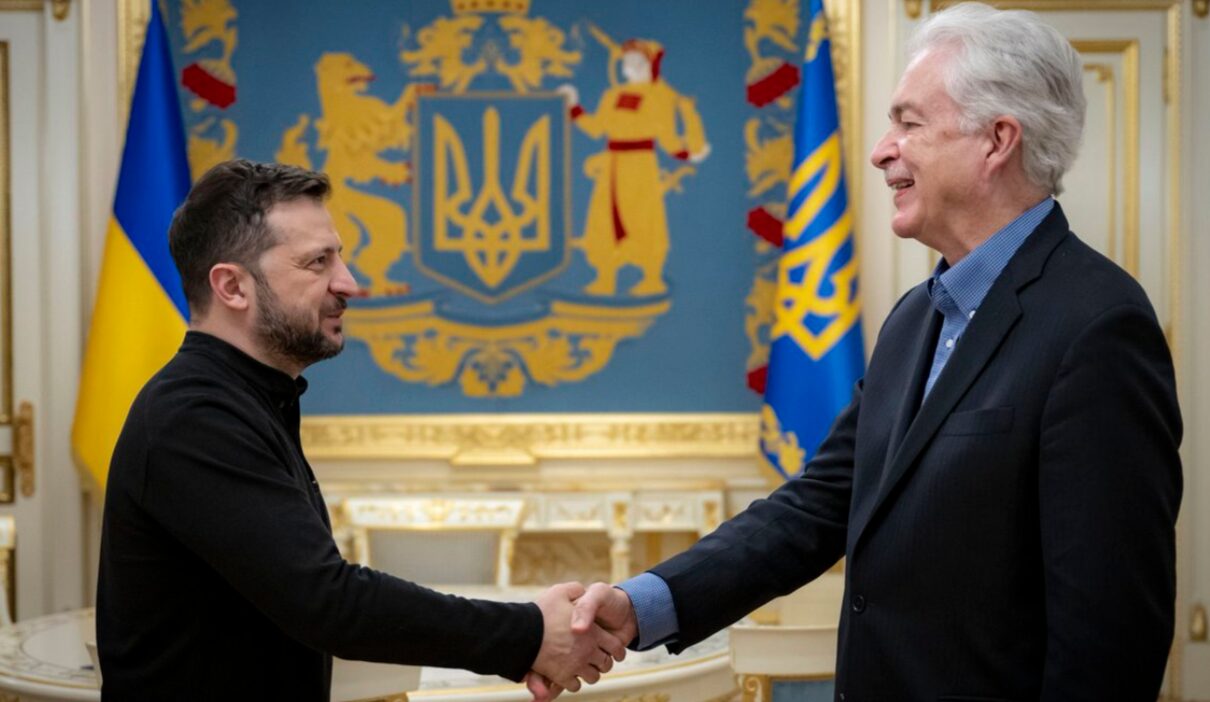Tributes Pour In for Former U.S. President Jimmy Carter, Who Passed Away at 100 – Biden described the Nobel Peace Prize recipient as a ‘statesman and a humanitarian’
Tributes Pour In for Former U.S. President Jimmy Carter, Who Passed Away at 100
The world has bid farewell to one of the most beloved and respected figures in American politics, former President Jimmy Carter, who passed away at the age of 100. Known for his deep commitment to peace, human rights, and humanitarian efforts, Carter’s passing has prompted an outpouring of tributes from global leaders, colleagues, and citizens alike. U.S. President Joe Biden, who worked closely with Carter throughout his political career, called him a “statesman and a humanitarian,” acknowledging his invaluable contributions to both the United States and the world.
A Legacy of Service and Dedication
James Earl Carter Jr., the 39th President of the United States, served from 1977 to 1981. His presidency was marked by both significant achievements and challenges, but it was his work after leaving office that cemented his place as a global icon. Unlike many other former presidents, Carter dedicated the last decades of his life to humanitarian efforts, earning him widespread recognition and respect.
His most notable achievements include brokering the Camp David Accords, which led to a peace agreement between Egypt and Israel in 1978, and his tireless efforts with Habitat for Humanity, where he helped build homes for impoverished families around the world. He was awarded the Nobel Peace Prize in 2002, in recognition of his years of advocacy for human rights, global peace, and his unwavering support for democratic governance and diplomacy.
President Joe Biden’s Tribute
As news of Carter’s passing spread, President Joe Biden was among the first to pay tribute to the former president. Biden, who had admired Carter throughout his career, described him as a “statesman and a humanitarian,” emphasizing Carter’s impact on both American politics and the global stage.
In a heartfelt statement, Biden remarked, “President Carter was a statesman of unparalleled moral clarity and a leader of profound conviction. He believed that peace was possible, that the world could be a better place for all, and that a president’s job was not just to lead but to serve with humility and purpose.” Biden also highlighted Carter’s work with his eponymous Carter Center, which he founded to advance peace and democracy around the world.
Carter’s reputation as a humanitarian was not limited to his formal work. He was a consistent advocate for the poor, the disenfranchised, and those in need, emphasizing compassion and empathy in all his endeavors. Biden’s tribute reflects the deep admiration many have for Carter’s unwavering commitment to public service, particularly during his post-presidency years.
A Lifetime of Advocacy for Peace and Human Rights
Carter’s post-presidential life was a testament to his enduring commitment to peace, diplomacy, and human rights. In addition to his work with Habitat for Humanity, Carter was heavily involved in election monitoring and humanitarian aid through the Carter Center. The organization, founded in 1982, focused on addressing global health crises, promoting democracy, and facilitating peace negotiations.
Perhaps one of Carter’s greatest legacies was his belief in the power of diplomacy and dialogue to resolve conflict. Whether in the Middle East or sub-Saharan Africa, Carter tirelessly worked to broker peace deals and resolve conflicts. His efforts in brokering the Camp David Accords between Egypt and Israel in 1978 are still regarded as one of the greatest achievements in modern diplomacy.
Throughout his life, Carter was a steadfast advocate for human rights, often speaking out against the abuse of power and the mistreatment of marginalized groups. He famously criticized both U.S. foreign policy and international abuses of power, remaining unwavering in his belief that the world could be a better place if governments acted with more compassion and a greater sense of moral responsibility.
The Nobel Peace Prize: A Recognition of Lifelong Service
In 2002, Jimmy Carter was awarded the Nobel Peace Prize, an acknowledgment of his lifelong dedication to promoting peace and improving human rights globally. His work with the Carter Center, particularly in the fields of public health and conflict resolution, was highlighted as the driving force behind this prestigious honor. Carter’s leadership in fighting disease, monitoring elections, and advocating for global peace made him one of the most influential former presidents in U.S. history.
His Nobel Prize was not just a recognition of his achievements during his presidency but of his relentless pursuit of peace after leaving the White House. His decades of work in mediating peace agreements and improving lives through healthcare initiatives were seen as an embodiment of the qualities that the Nobel Peace Prize sought to honor.
Reactions from Around the World
In addition to President Biden, leaders from around the world have expressed their condolences and admiration for Carter. Former U.S. presidents such as Bill Clinton and George H. W. Bush praised his statesmanship, character, and his efforts to improve the lives of others. International leaders echoed similar sentiments, acknowledging Carter’s deep commitment to global peace and his role in shaping U.S. foreign policy in a manner that prioritized human rights and diplomacy over conflict.
Many have also shared personal stories of Carter’s kindness and humility. His character and integrity were central to his identity, and those who knew him, whether personally or professionally, remembered him for his unwavering commitment to justice and fairness.
A World Mourning the Loss of a Giant
The passing of Jimmy Carter at the age of 100 marks the end of an era for U.S. politics and global humanitarian efforts. His impact was felt not only in the United States but across the globe, where his influence in peacebuilding and human rights advocacy left an indelible mark on international relations.
While Carter’s presidency was often overshadowed by the tumultuous period of the late 1970s and early 1980s, it was his post-presidential life that truly defined his legacy. As a peacemaker, humanitarian, and advocate for democracy, he proved that leadership doesn’t end when a person leaves office. Instead, it continues through the work they do long after the cameras have stopped rolling.
Conclusion: Honoring a Legacy of Compassion and Service
Jimmy Carter’s death at the age of 100 leaves a profound gap in the world of politics, humanitarianism, and global diplomacy. His legacy will live on through the countless lives he touched with his work, his leadership, and his boundless commitment to serving others. In his passing, the world has lost a statesman who showed us the true meaning of public service—putting people before power and always striving to make the world a better, more peaceful place.
As the tributes continue to pour in for Carter, one thing is clear: the world has lost a giant whose life’s work will continue to inspire future generations of leaders, diplomats, and humanitarians.

















Post Comment